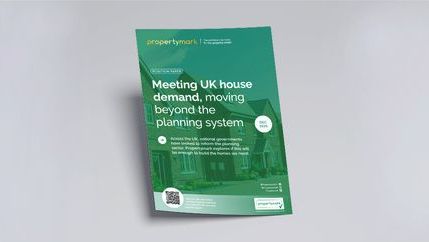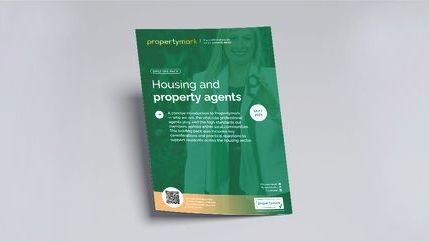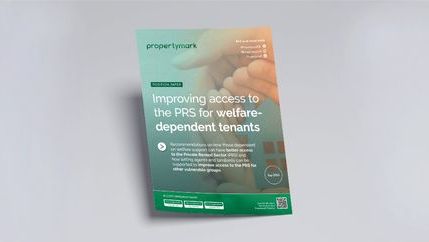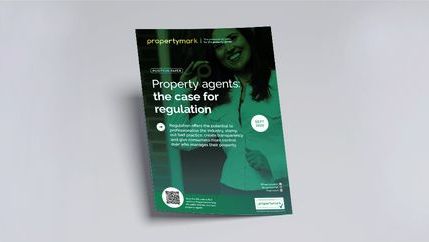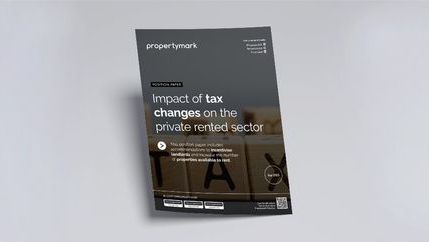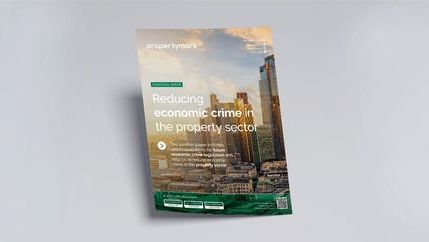Member representation: Consultation responses and position papers
Propertymark position papers
Meeting UK house demand, moving beyond the planning system
It has been argued that the existing planning system is no longer fit for purpose, that it is blocking the delivery of new homes. Across the UK, national governments have looked to reform the planning sector—Propertymark explores if this will be enough to build the homes we need.
Housing and property agents
Our Councillor briefing pack provides an introduction to Propertymark, our work, the role of property agents and the standards our members adhere to within your local community. It also contains useful questions and areas to consider within the housing sector to support residents.
Improving access to the PRS for welfare-dependent tenants
Includes recommendations on how those dependent on welfare support can have better access to the Private Rented Sector (PRS), and how letting agents and landlords can be supported to improve access to the PRS for other vulnerable groups.
Property agents: the case for regulation
Regulation offers the potential to professionalise the industry, stamp out bad practice, create transparency and give consumers more control over who manages their property. Minimum qualification requirements and statutory Code of Practices to be adhered to by all letting and managing agents in England and sales agents across the UK should be introduced.
The future of home buying and selling
Propertymark’s position paper comes off the back of the renewed efforts to improve the home buying and selling process. In this paper, we have presented the agents’ perspective to ensure that future regulations reflect the evidence our members are seeing on the ground and that future actions respond to the largest challenges affecting the process.
Impact of tax changes on the private rented sector
Using survey data from Propertymark members, and other private and public sector organisations, this position paper highlights the detrimental impact that government decisions since 2015 have had on the tax and financial situation for landlords in the PRS.
Reducing economic crime in the property sector
Purchasing property in the UK is a common method that can be used by serious organised criminals to launder the proceeds of criminal activity. This position paper includes recommendations that the UK Government should include in future legislation as well as other plans and reforms to reduce economic crime.
The Future of Renting
The Future of Renting features our recommendations to the UK Government and its plans to reform the private rented sector in England. We want to help shape and influence the UK Government’s Renters’ Reforms White Paper which is due to be released in 2022.
Read our consultation responses
Joined-up thinking on EPCs is needed to balance with housing reality
Energy efficiency policy has major implications for the private rented sector (PRS), homebuyers and sellers, and the wider housing market. Our response to the UK Government’s consultation on reforms to Energy Performance Certificates (EPCs) and the introduction of the Home Energy Model sets out clear recommendations to ensure changes are grounded in real-world property conditions and avoid unintended consequences for supply.
London’s pressure points loom large in Renters’ Rights planning
Our response to the London Assembly Housing Committee’s call for evidence highlights that the success of rental reform in London will depend not only on legislative change, but on whether court capacity, enforcement structures, and market realities are aligned to support it, a position that was echoed by a panel of industry experts in a live evidence session in City Hall on 9 February 2026.
Short-term lets in focus as Northern Ireland reviews tourist accommodation rules
The Department for the Economy (DfE) is consulting on reforms which, if progressed, will shape how tourist accommodation is defined and regulated for years to come. For agents involved in short-term lets, clarity on categories and criteria will be critical to ensure compliance without disrupting business models, and any final regulations must recognise the role of professional agents, reflect the realities of the market, and strike the right balance between consumer protection and practical delivery.
Meaningful home buying and selling reform must deliver for agents and consumers
Propertymark supports the UK Government’s ambition to reform the home buying and selling process and agrees that change is long overdue. Reform must be practical, proportionate and focused on outcomes. By improving upfront information, raising professional standards, embracing digital solutions and reducing duplication, reform can deliver faster, more reliable transactions that work for agents, consumers and the wider economy.
Material information reform must be shared, digital and realistic
Proposals to standardise the details provided in property listings are intended to improve transparency, speed up transactions and reduce fall-throughs, but without the right structure, shared responsibility, and practical implementation, the reforms risk placing unrealistic burdens on agents and slowing the process further. Propertymark supports the principle of better upfront information, but stresses that the current approach does not reflect how transactions work in practice.
Protecting long-term housing supply requires broader focus than holiday lets
Propertymark has provided the Welsh Government with clear evidence on how short-term and holiday lets affect housing supply, communities and the work of property agents in response to the latest plans for the regulation of self-catering visitor accommodation.
Vital intel for property agents as Ofgem becomes heat networks regulator
Formal regulation marks a major shift in how these systems are overseen and how consumers are protected. For property agents, this change is important because it will affect how heat networks are operated, what information consumers must receive, and how agents advise clients and market properties connected to networks. Hundreds of thousands of homes, particularly in blocks of flats and new developments, are already connected, and their use is expected to grow as part of the UK’s decarbonisation plans.
What must change to make more home ownership dreams a reality
Head of Policy and Campaigns, Timothy Douglas, has followed up our written submission to the Housing, Communities and Local Government Committee inquiry into housing affordability with in-person evidence on 6 January 2026. Our evidence reinforces the need for a joined-up approach to affordability which considers housing supply, rental market pressures, financial products, taxation, and consumer costs together.
Spring 2026 is set to show new growth for pooled client accounts
Propertymark shared member survey data to illustrate the challenges faced by agents when the UK Government requested evidence on how the UK Money Laundering Regulations could be improved. Ministers have listened, and regulations expected to take effect in early 2026 will have sensible changes to Customer Due Diligence and improve access to compliant business banking services for agencies.
Modernisation of compulsory purchase rules must protect property rights
Plans for a transparent and balanced system are welcome and could have significant benefits for Scotland’s regeneration and housing ambitions. However, reform must not come at the expense of fairness. Clearer legislation, early engagement, and collaboration with qualified property professionals will ensure that public projects can proceed efficiently while protecting the rights and confidence of property owners and agents.
Clear and workable process is needed for an effective financial sanctions regime
Following major changes in global sanctions since 2018, the Office of Financial Sanctions Implementation (OFSI) has sought views on how to update its penalty, disclosure, and settlement frameworks. Reforms should both strengthen deterrence and make it easier for businesses, including property agents, to comply and report breaches confidently.
Axing public input risks lower-quality infrastructure projects
Proposals to remove consultation requirements from the Nationally Significant Infrastructure Projects process could result in poorer-quality developments being fast-tracked at the expense of long-term outcomes. While a faster system is important, this must not come at the cost of scrutiny and public confidence. Skipping or shortening consultation stages risks creating legal challenges and public backlash that could ultimately delay, rather than speed up, projects.

